Do oil-filled radiators cause moisture? Here's what every homeowner should know, according to experts
Experts say they're safe, but you should still keep these important factors in mind

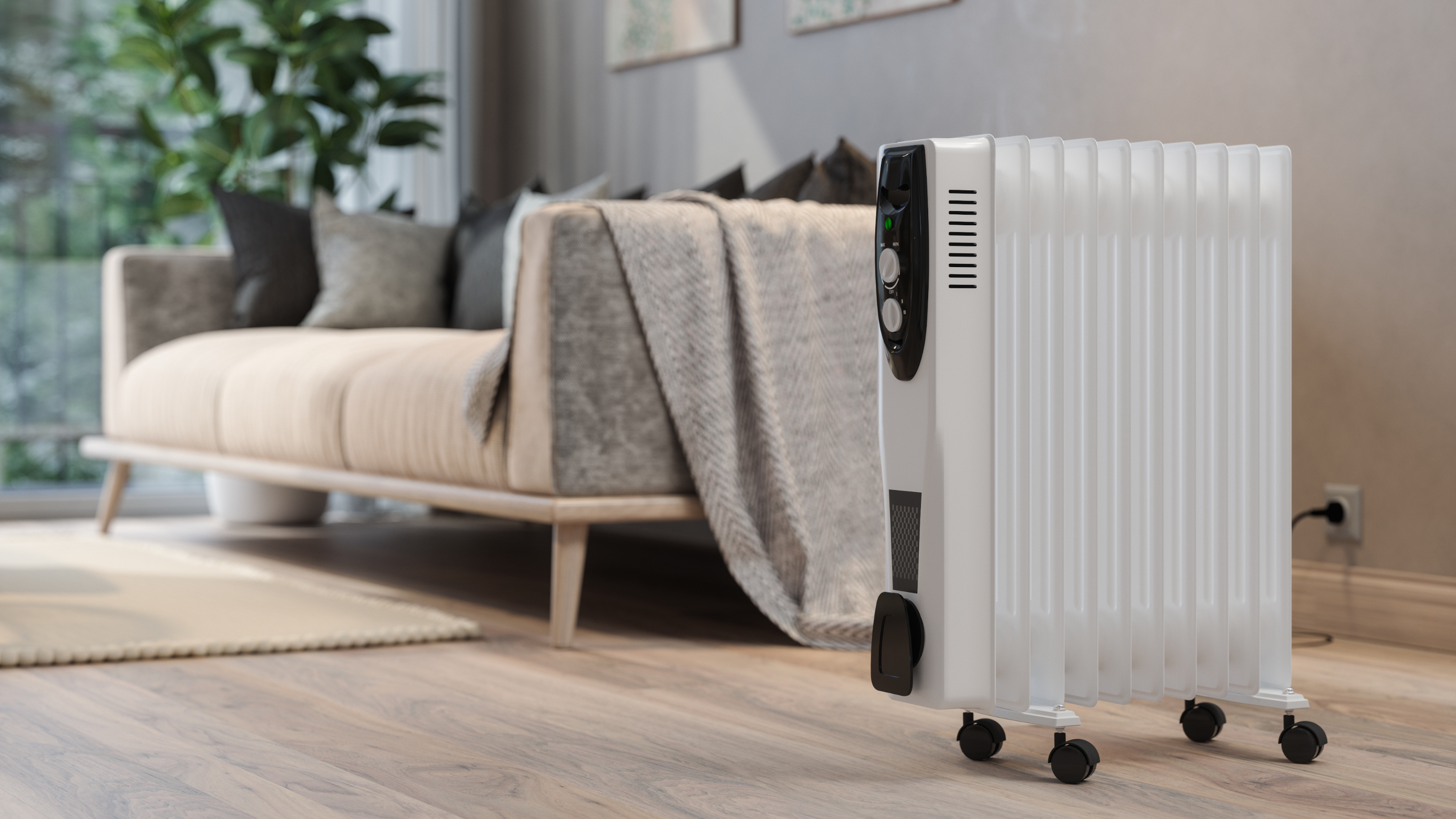
Sign up to our newsletter for style inspiration, real homes, project and garden advice and shopping know-how
You are now subscribed
Your newsletter sign-up was successful
Oil-filled radiators are a hot topic right now, and we suspect it's because of how powerful the heat they emit is and how economical they are to run. As temperatures continue to plummet across the country, many people are likely looking for a way to stay warm at home without having to switch on the heating and oil radiators are a great option; but a question some might have is: do oil heaters cause moisture?
The very thing that differentiates the best oil-filled radiators from the best electric heaters is that the former don't circulate warm air nor do they offer a gust of heat instantly. Rather, the oil inside the radiator is heated slowly, emitting a steady warmth that lingers even long after it's switched off. So, while they take a little bit longer to kick in, for some, it's worth it thanks to their longer-lasting benefits.
Due to the nature of these appliances not containing any water in their operation, we're pleased to report that these oil heaters do not directly cause moisture inside your home. In fact, they can even help manage humidity levels in some cases as they dry the air. But this isn't without its caveats.
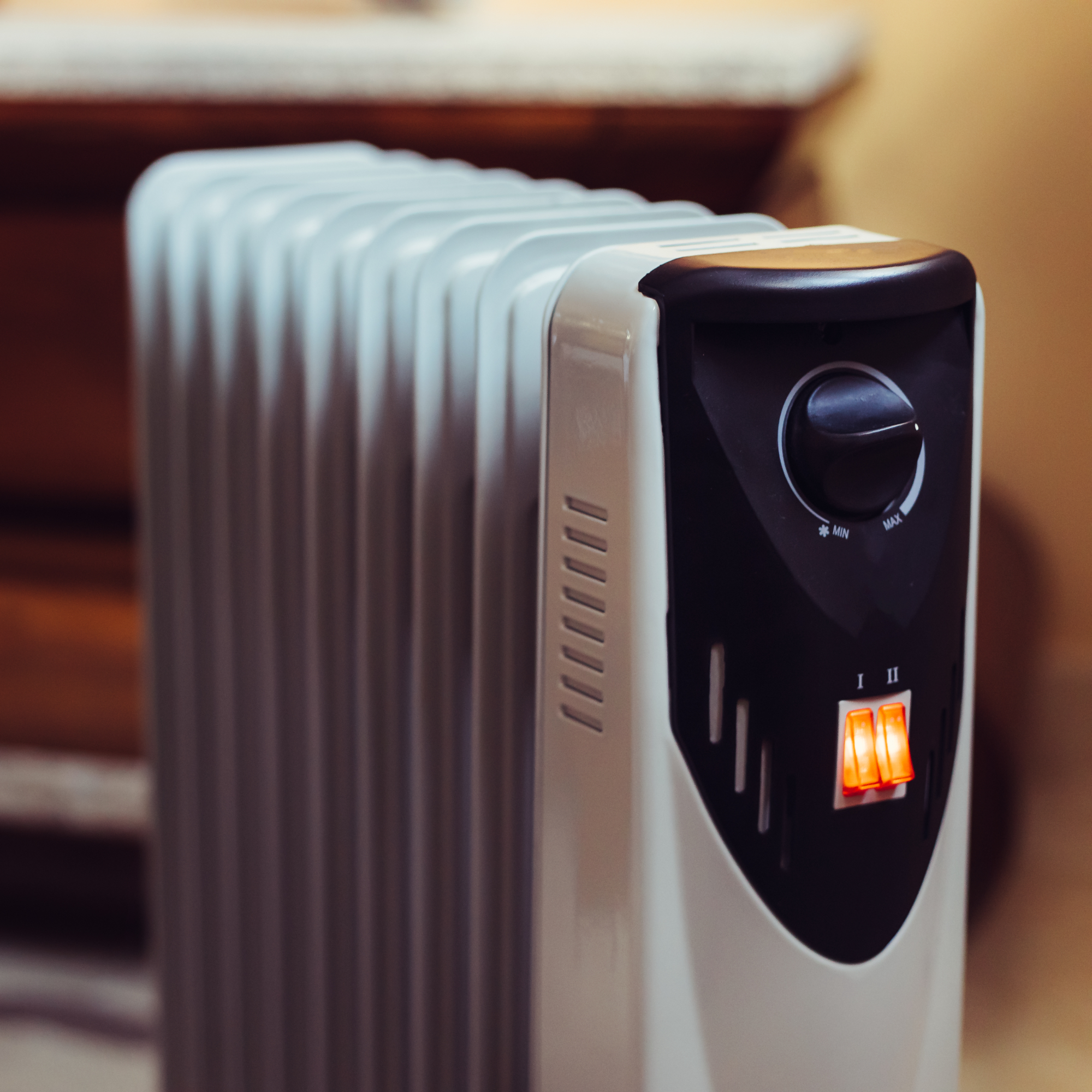
'Unlike humidifiers or boilers, oil-filled radiators don't include water in their operation and cannot release water vapour or increase indoor humidity levels,' says Joshua Warren, radiator expert at AO.com. 'Since they are a dry heat source, you can rest assured knowing that, if anything, your radiator tends to lower humidity levels as it warms the air.'
James Longley, managing editor at Utility Bidder notes that 'oil-filled radiators use radiant heat, which helps to keep the area around them warm, which in turn, prevents moisture building and turning into condensation.' Plus, James even adds that oil-filled radiators help to retain humidity if anything, contributing to creating a 'warmer and dust-free environment,' he assures.
Therefore, while it may seem like your radiators are contributing to increased humidity levels inside your home, Joshua says that this is simply a misperception. 'Heating any room can lead to warm air holding more moisture. When this air encounters cold surfaces such as your windows, condensation may form, but this is not caused by the radiator – it is the warm air meeting a cooler surface,' he explains.
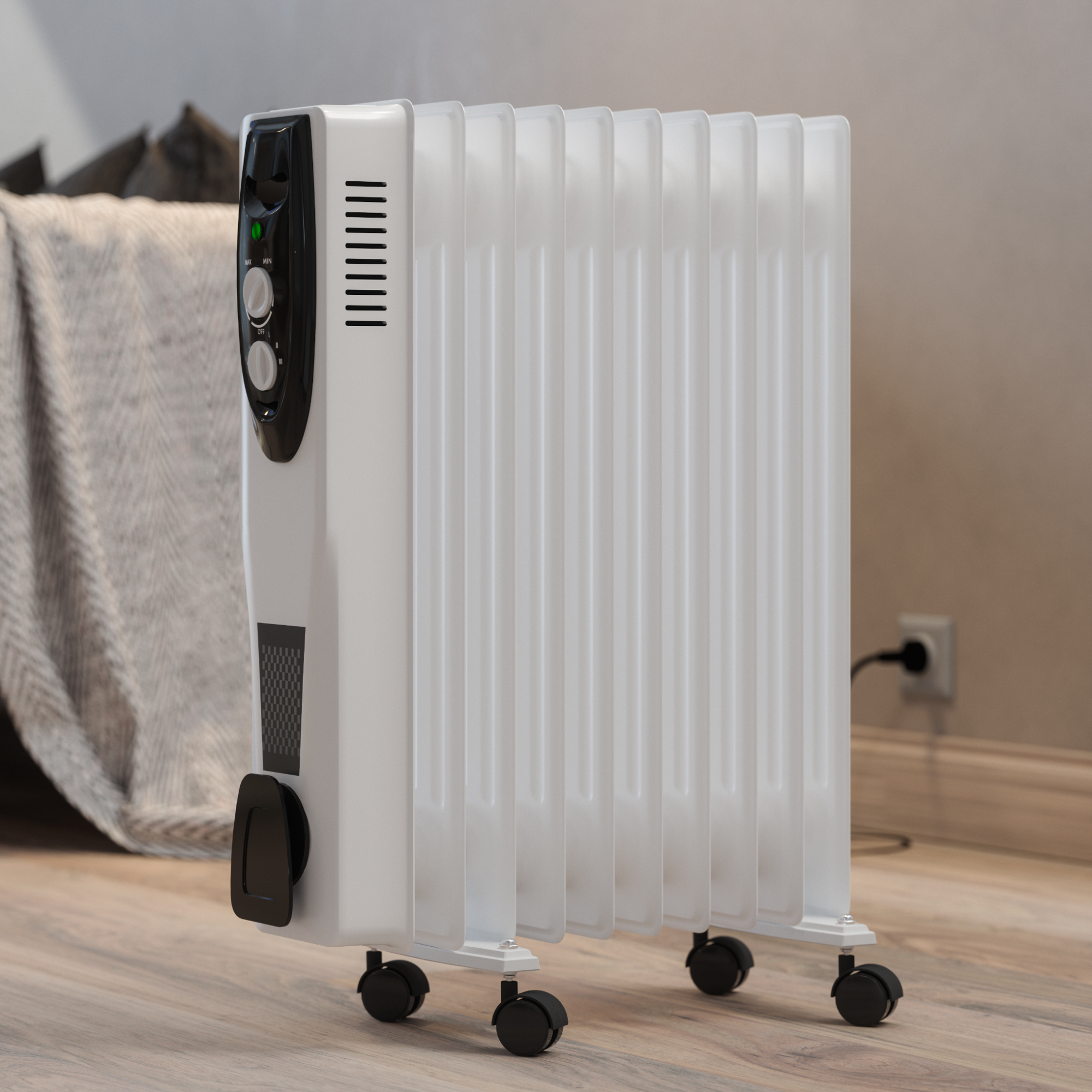
The only thing you really should be cautious about when using an oil-filled radiator is if you have moderate to major existing moisture issues and are in dire need of a dehumidifier's assistance. In such cases, it's really important to make a targeted effort to get rid of damp inside your home.
Sign up to our newsletter for style inspiration, real homes, project and garden advice and shopping know-how
'If a home is poorly ventilated or has high humidity levels to begin with, using an oil-filled heater could exacerbate the problem by drying out the air too much,' warns Jess Steele, a heating technology expert at BestHeating.
Therefore, to prevent moisture build-up and maintain healthy indoor air quality when wanting to use external heating sources like an oil-filled radiator, Jess recommends the following:
- Ventilate your home – open windows for at least 10 minutes everyday or use extractor fans to circulate fresh air.
- Control humidity levels – use a dehumidifier if necessary to remove excess moisture from the air (rest assured, there are plenty of ways to dry a room without using a dehumidifier, too).
- Maintain proper heating – ensure your heating system is working efficiently and not causing excessive dryness.
Shop oil-filled radiators
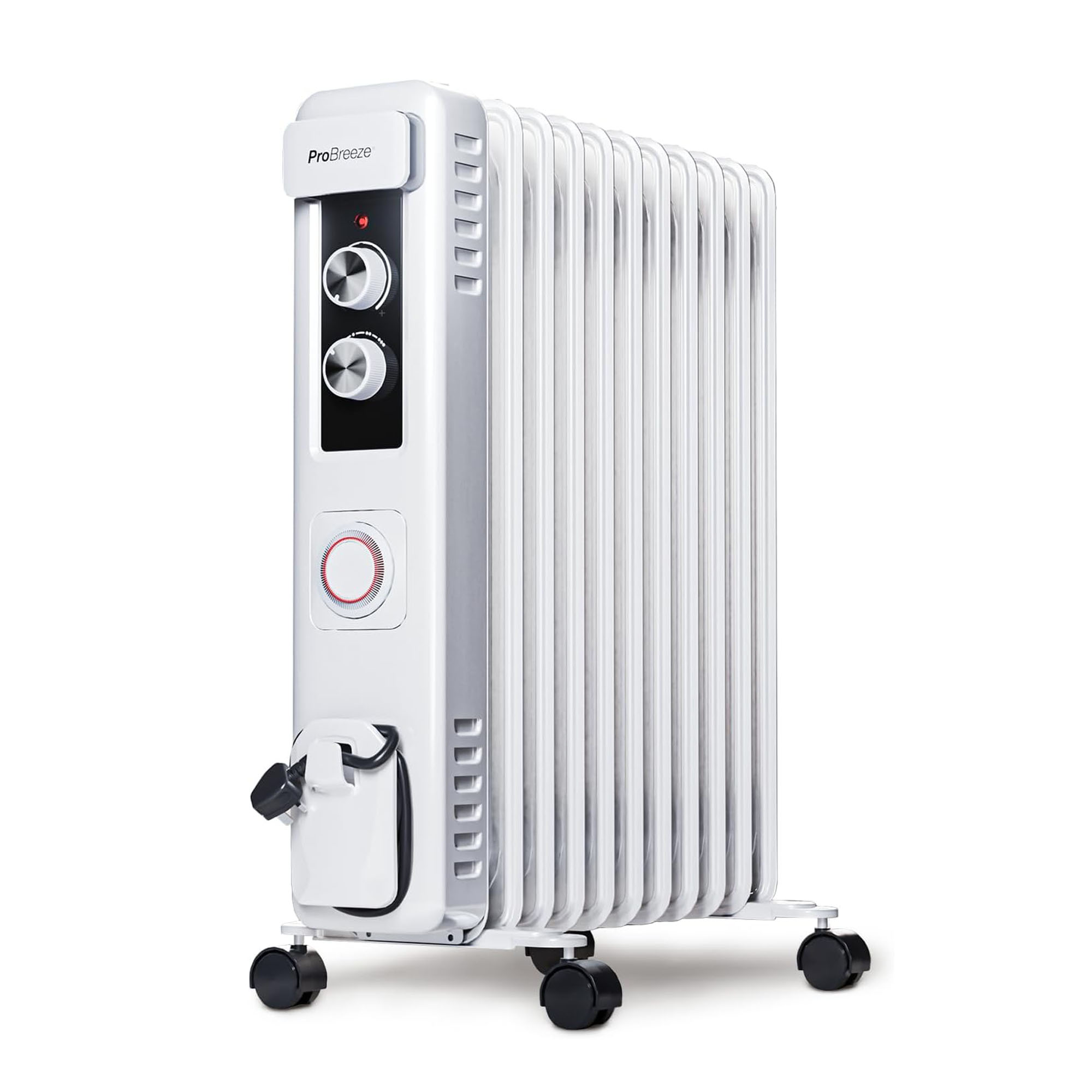
An attractive design, fairly easy-to-use controls, minimal assembly, and powerful performance combined with a relatively affordable price point means we rate the Pro Breeze 2500W Radiator as the best oil filled radiator overall. It makes fast work of warming a large space, with three temperature settings, a thermostat and timer to manage the heat output.
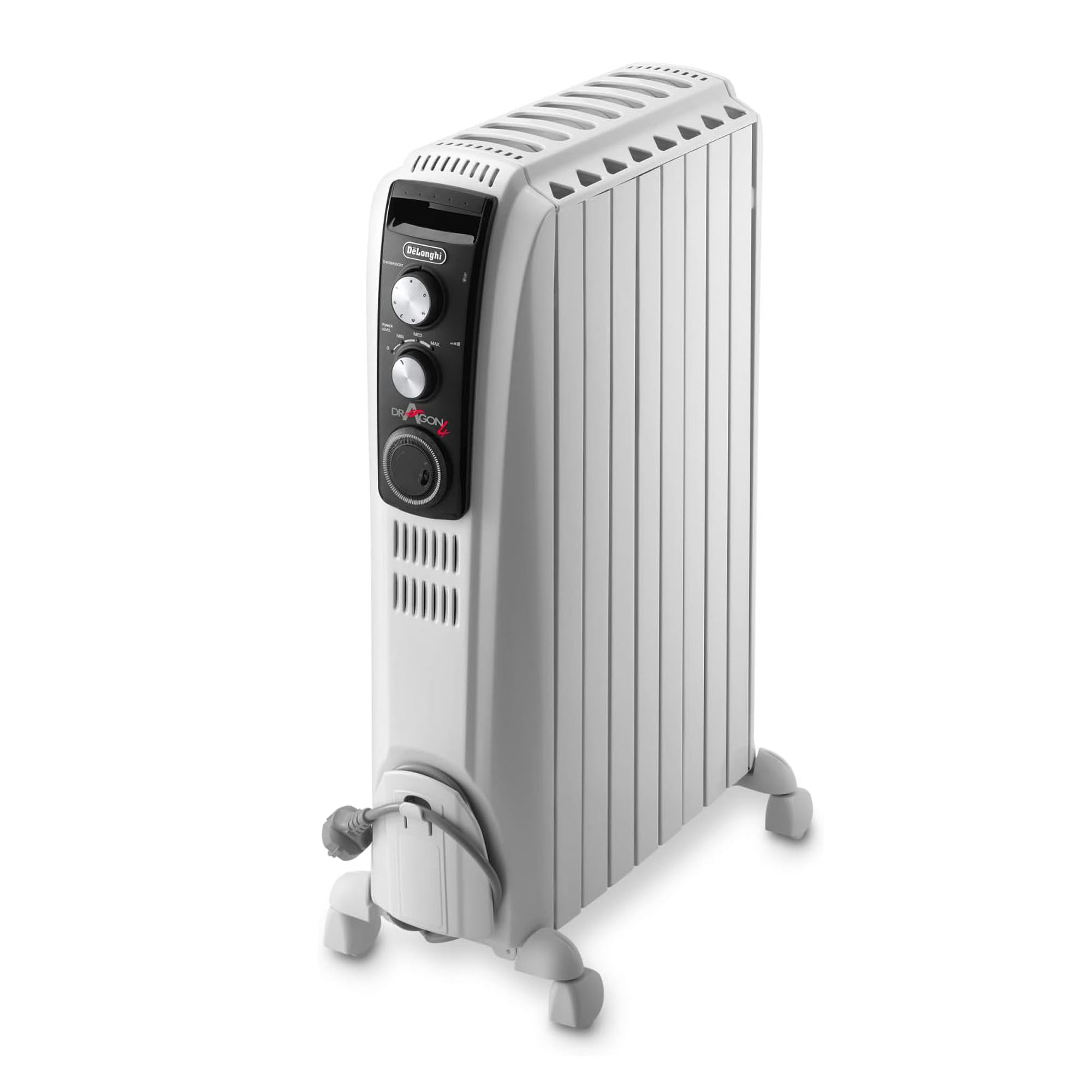
We couldn't fault the De’Longhi Dragon 4 on performance, with its powerful 2500W heat output making short work of warming large and draughty rooms. Plus, it delivers slightly better functionality than the Pro Breeze 2500W radiator. That said, it's large, heavy, and almost twice the price. However, its 10-year manufacture warranty might tempt you to part with your cash.
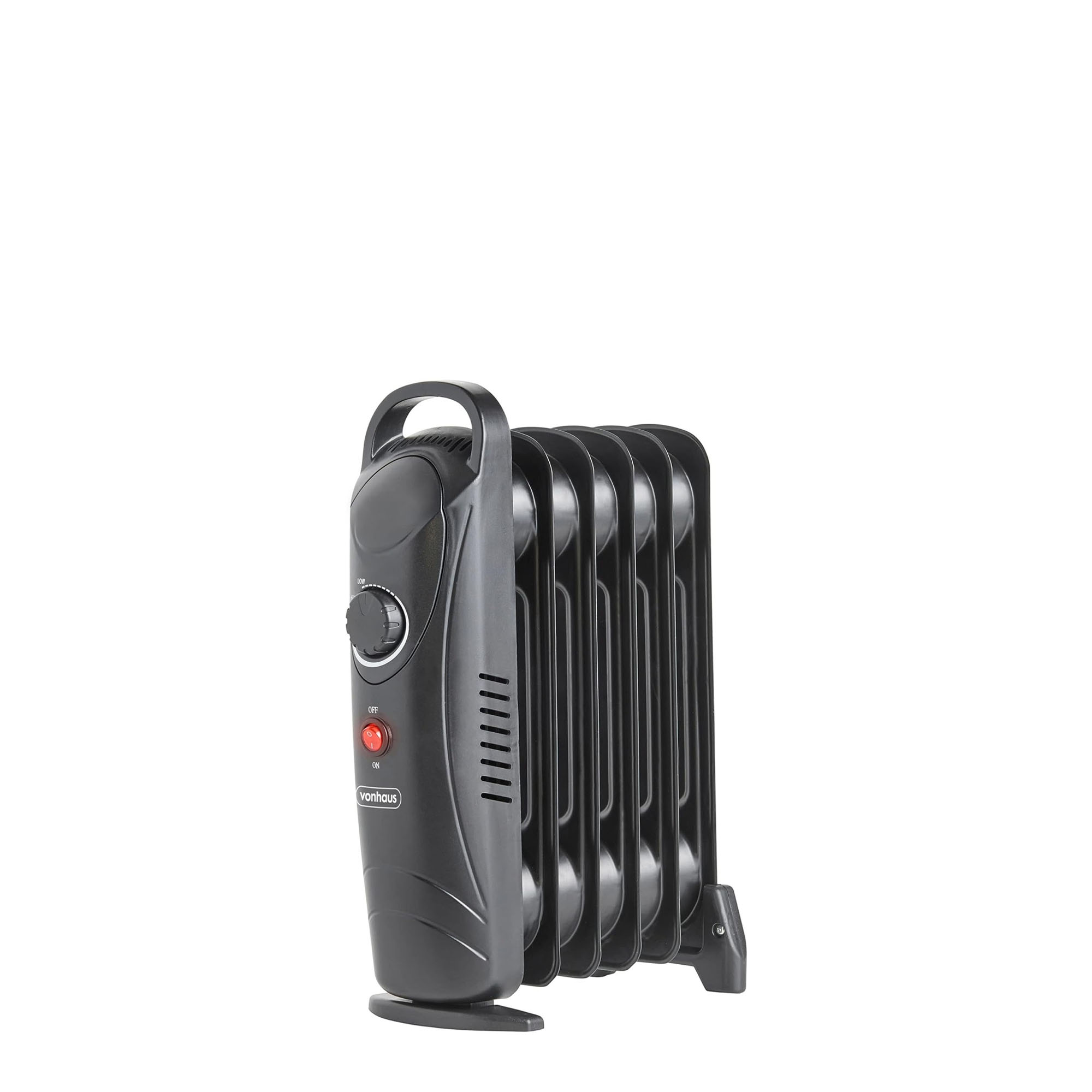
The cheapest oil filled radiator in our round-up, this mini heater is compact, lightweight, and easily portable. It only offers one 800W heat setting, but as long as you only need to heat a small area it can do the job. The lower wattage also means lower energy usage, plus, it's super easy to use, with only a on/off button and a simple min/max thermostat to operate. And, you can choose from a black or white finish.
'By following these tips, you can enjoy the benefits of oil-filled heaters without worrying about moisture issues,' concludes Jess.
By understanding exactly what oil-filled radiators do, you can rest assured that using these heaters to stave away the cold won't cause additional moisture to develop inside your home.
Not to mention, by ensuring you're making a conscious effort to regularly ventilate your home and manage indoor humidity levels where you can, you're already well on your way to creating a comfortable home environment.

Jullia was Ideal Home’s Junior Writer from 2022-2024 and the Ideal Home Certified Expert in Training on Vacuums having spent over 60 hours testing different models. She’s always loved all things homes and interiors, graduating with a bachelor’s degree in Architectural Studies from the University of Nottingham where her love for writing blossomed following her internship at ArchDaily. Now focused on home tech and cleaning, Jullia works on writing features and explainers to help people make the most of their home appliance investments, putting the newest launches through their paces. When she isn’t writing, she loves exploring the city, coffee shop hopping, and losing hours to a cosy game or book.